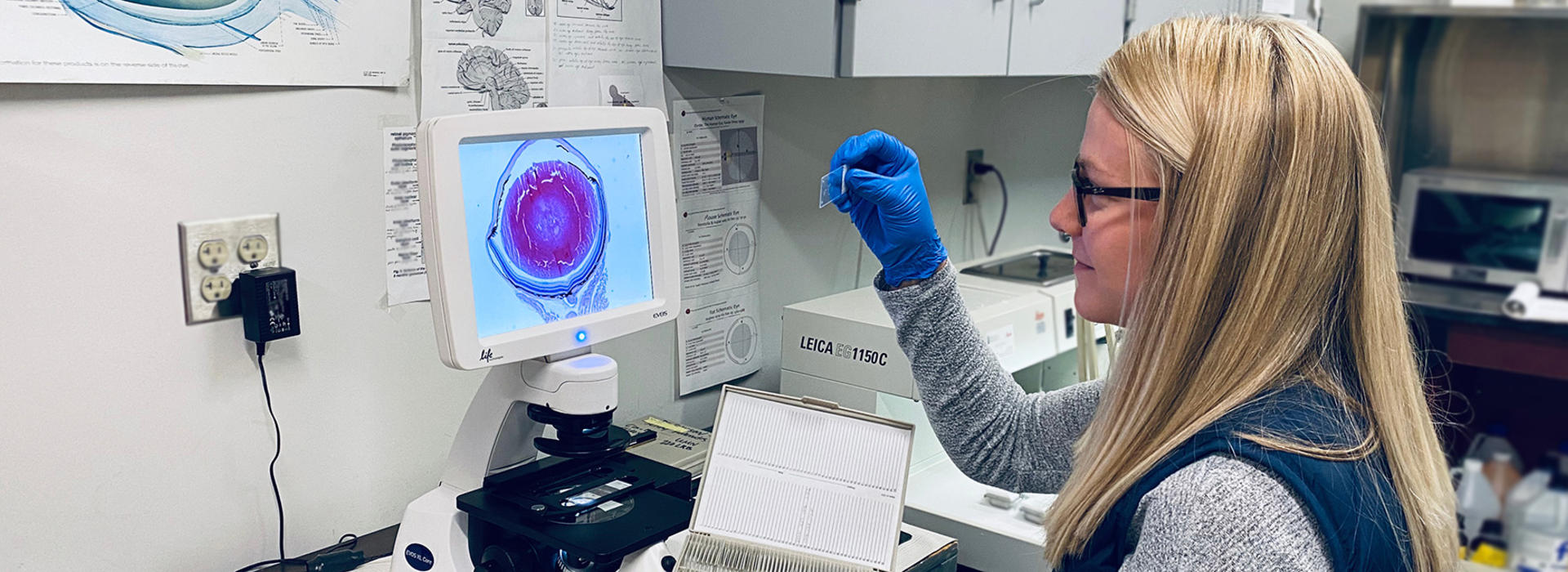
Research
Our department’s research strength lies with the strong collaborations between our clinical researchers and basic science researchers. Because of this, we have moved notable discoveries from the laboratory into the clinic in areas such as macular degeneration, cornea transplantation, and oculoplastics.
Message from the Director of Research, Harald Junge, PhD
“We are fortunate to be in a terrific research environment. Clinical and research faculty enjoy unique opportunities to collaborate and benefit from access to patient samples and tissue specimens from the Lions Gift of Sight Eye Bank. OVNS faculty further take advantage of collaborating with members of several dynamic research communities at UMN. First and foremost, the vision research community, which is supported by an NEI P30 Vision Core grant. This multidisciplinary group includes investigators from several departments at UMN. In addition, OVNS faculty interact with members of UMN Institutes and Centers, e.g., Institute of Stem Cell Biology, Institute for the Biology of Aging and Metabolism, Institute of Human Genetics, Center for Developmental Biology, Brain Barriers Research Center, and Cancer Center.
Our OVNS research is strongly augmented by a network of outstanding and affordable research facilities, e.g., for vision research, stem cell biology, microscopy, imaging, genomics, transgenic animals, animal behavior, flow cytometry, viral vectors, mass spectrometry, and magnetic resonance. In addition to federal funding, research at UMN is supported by substantial state funding, for example for Medical Discovery Teams and Regenerative Medicine Minnesota. These growing research communities at UMN provide momentum and critical mass to further accelerate our ophthalmology and visual neuroscience research. Several of our OVNS faculty are leaders in graduate student education, for example in the Graduate Program Neuroscience, or the College of Biological Sciences graduate programs. OVNS faculty successfully obtained two NIH T32 training grants, which support excellence in research and graduate education across the campus. It is rewarding to participate in the training of the next generation of researchers who will advance basic science discoveries from the bench to the clinic.”